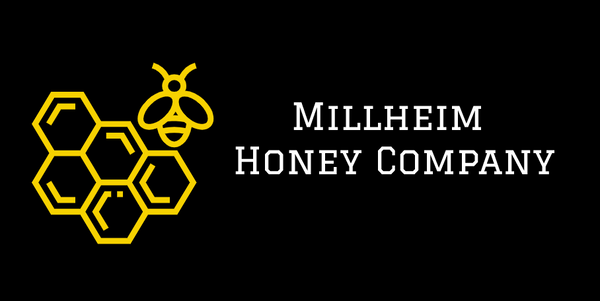
The Role of Bees in Agriculture and Why They Matter
When you think about honeybees, the first thing that likely comes to mind is honey. But did you know that bees play a far more significant role in our everyday lives than just producing this sweet treat? Honeybees are essential pollinators, responsible for much of the food we eat and the overall health of our ecosystems. At Millheim Honey Company, we’re not just passionate about honey; we’re dedicated to supporting these incredible insects because of the vital role they play in agriculture.
Why Are Bees Important for Agriculture?
Bees, particularly honeybees, are some of the most efficient pollinators on the planet. Pollination is the process of transferring pollen from the male part of a flower (the stamen) to the female part (the pistil), which results in fertilization and fruit production. While wind and other insects can also aid in pollination, honeybees are responsible for pollinating approximately one-third of the food crops we consume.
Without bees, many of our favorite fruits, vegetables, and nuts wouldn’t exist—or would be much scarcer and more expensive.
The Crops That Depend on Bees
Some crops are entirely dependent on honeybees for pollination, while others benefit greatly from their efforts. Here are just a few of the many foods we have bees to thank for:
- Fruits: Apples, blueberries, cherries, peaches, and strawberries rely heavily on bee pollination.
- Vegetables: Cucumbers, squash, pumpkins, and tomatoes are also bee-pollinated crops.
- Nuts: Almonds are one of the most bee-dependent crops, with California’s almond industry relying on billions of honeybees to pollinate its orchards each year.
- Seeds: Crops like sunflowers and canola also depend on bee pollination to produce seeds.
Without honeybees, these crops would suffer in both quantity and quality, leading to less availability and higher prices in the market.
Bees and Biodiversity
Beyond agriculture, honeybees are critical to maintaining healthy ecosystems and promoting biodiversity. By pollinating wild plants, they help ensure that various plant species continue to thrive, which in turn supports other wildlife, such as birds, insects, and small mammals.
This biodiversity is crucial for a balanced ecosystem. Without pollinators, entire food chains could be disrupted, leading to negative consequences for both natural habitats and human agriculture.
Threats to Bees: Why We Need to Protect Them
Despite their importance, bee populations have been facing significant declines in recent years. Several factors are contributing to this crisis, often referred to as “colony collapse disorder” (CCD). These include:
- Pesticides: The widespread use of pesticides, particularly neonicotinoids, has been linked to bee deaths and weakened colonies.
- Habitat Loss: Urbanization and large-scale farming practices have reduced the natural habitats where bees forage for food.
- Climate Change: Changes in weather patterns can disrupt the flowering cycles of plants, limiting food sources for bees.
- Parasites and Diseases: Mites, viruses, and fungi are common problems that can devastate bee colonies.
Given these challenges, it’s more important than ever to take action to protect bees. At Millheim Honey Company, we’re committed to responsible beekeeping practices that prioritize bee health, and we encourage others to make choices that support pollinator-friendly environments.
How You Can Help Protect Bees
Even small steps can make a big difference in supporting bee populations and their role in agriculture. Here’s how you can help:
-
Plant Bee-Friendly Flowers: Create a bee-friendly garden by planting flowers that bees love, such as lavender, sunflowers, and wildflowers. Even a small patch of flowers can provide bees with essential food sources.
-
Avoid Pesticides: Opt for natural alternatives to pesticides in your garden. If you do need to use pesticides, apply them in the evening when bees are less active.
-
Support Local Beekeepers: Purchasing honey and beeswax products from local beekeepers helps promote sustainable beekeeping practices and supports bee populations in your community.
-
Provide a Water Source: Bees need water, too! Place a shallow dish of water with some pebbles for bees to rest on, giving them a place to hydrate while they work.
-
Advocate for Pollinator-Friendly Policies: Support legislation and community initiatives that prioritize pollinator health, such as habitat conservation programs and pesticide regulations.
Conclusion
Bees are far more than just honey producers—they’re the unsung heroes of agriculture and biodiversity. By pollinating many of the crops we rely on, they play a crucial role in food production and maintaining healthy ecosystems. At Millheim Honey Company, we are proud to do our part in supporting bees and educating the public about their importance. We encourage everyone to take steps to protect these vital creatures, so they can continue to do their essential work for generations to come.
